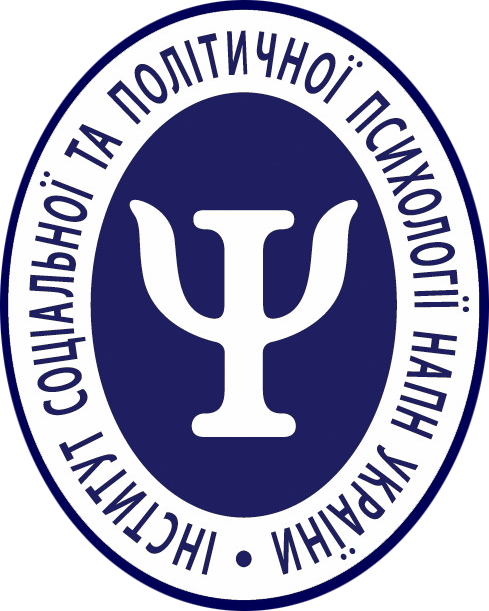Dear colleagues,
We cordially invite you to attend the VIth inter-institutional seminar “Cyber socialization in the conditions of increased uncertainty”. In addition, we invite you to share the results of your work during this seminar in the form of a short presentation. The seminar will unite scientists and practitioners from different disciplines to discuss processes of personality development in view of modern technological interventions that have become commonplace in our daily life.
This seminar aims to increase the capacity of the media and digital literacy network, as well as to enhance international collaboration in the domain of cyberpsychology and cybertechnology. It brings together different evidence-based perspectives on the phenomena and provides a platform for discussing the prevention of various cyber risks and tracking changes in cyber practices under the conditions of global challenges and indeterminate situations. The seminar is also focused on discussing the potential threats of the technology to health and personal development while acknowledging its positive impact on society and education.
When: August 26, 2022, 10 AM – 4 PM CEST
Where: Tilburg University (The Netherlands) and online (Zoom)
Host: Department of Cognitive Science and Artificial Intelligence, Tilburg School of Humanities and Digital Sciences
The seminar is offered by the Laboratory of Mass Communication and Media Education Institute of Social and Political Psychology National Academy of Educational Sciences of Ukraine in cooperation with the Department of Cognitive Science and Artificial Intelligence at Tilburg School of Humanities and Digital Sciences.
Scope of topics:
- philosophical conceptualization of cyber socialization phenomena in circumstances of global changes and uncertainty (posthumanism, transhumanism, digital humanism, cyborgization, biohacking, territoriality, physicality, extended reality critical issues);
- information safety and cybersecurity challenges (infodemic, deepfakes, bot farms, cyber interventions);
- social communication and socially creative role in the modern media during uncertainty period (problems of journalism, social media, visualization, self-regulation);
- new technologies and trends in changes of cyber practices during the last decade and thereafter (technological trends and hype, cyber accessibility, digital inequality, cyberbullying, cyber theft, sex exploitation, etc.);
- virtual and augmented reality in education and health care (gamification, robotization, parasocial relationships, media art therapy, psychotherapy in cyberspace);
- psychological and age-appropriate peculiarities of cyber practices in conditions of distance education (ICT, big data, AI, edutech for teaching; UX needs);
- children rights in cyberspace, cyber education, digital parenting;
- media art and children / adolescence subcultures in cyberspace (social networks, blogging, cybersport, cyberpunk, fanfiction, fandoms, etc.);
- media education and media literacy, cyber pedagogy (critical thinking, digital literacy, netiquette, cyber literacy, and cyber hygiene);
- neuropsychological and psychophysiological aspects of cyber socialization, rehabilitation;
- robotic psychology and related scientific challenges;
- new directions in cyberpsychology;
- cyber socialization in wartime.
To be able to present your work on one of the above-listed topics, we invite you to submit the abstract that will be published online. Accepted abstracts will be published on the website of the Laboratory of Mass Communication and Media Education of the Institute of Social and Political Psychology National Academy of Educational Sciences of Ukraine and Electronic library of the National Academy of Pedagogical Sciences of Ukraine.
The video abstracts will be published on the Youtube channel of the Laboratory of Mass Communication and Media Education of the Institute of Social and Political Psychology National Academy of Educational Sciences of Ukraine.
Deadline for abstract submission: August 9, 2022
Notification of acceptance: August 19, 2022
Registration deadline: August 24, 2022
Conference language (including abstracts): English.
Guidelines for authors (text)
length: 2.500 words;
- file format: docx or pdf;
- font – Times New Roman, size – 11. Style «Normal»; line spacing – 1,5; indentation special – 1,25; alignment – justify. Margins: 20 mm. Tables and images size in the text – 104×170; captions above the table. The minimal size of tables font – 8. References in square brackets, listed alphabetically; arrange in accordance to APA bibliographic style;
- header elements: in the first row left – initials and author’s last names, academic rank, scientific degree; the second row – educational institution, city, country; the next row – theses/article title (center, capital letters);
- file name format: CS22_Kozak_O.O._title.doc
Participants can also submit a pre-recorded presentation.
We ask you to use the recommended formatting. Authors are responsible for the content and reliability of the materials.
Submission link: https://easychair.org/conferences/?conf=cybersocialization20
In case you want to take part in the seminar as a listener, please register in this form: https://docs.google.com/forms/d/e/1FAIpQLSczPwcGoSZDYmr_lf77WsAy3Uqv7GsnO5mGsqbQTMi-z6LjpQ/viewform?pli=1
The day before the seminar, we will send a Zoom link to the e-mail address of the registered participants of the seminar.
In collaboration with: Institute of Social and Political Psychology National Academy of Educational Sciences of Ukraine and Tilburg School of Humanities and Digital Sciences.
With the assistance of Institute of Journalism of the Taras Shevchenko National University of Kyiv, Department of Sociology and Law of the National Technical University of Ukraine «Igor Sikorsky Kyiv Polytechnic Institute», Institute of Journalism Borys Grinchenko Kyiv University, Department of Political Psychology and International Relations of the Faculty of Psychology National Pedagogical Dragomanov University, Media Psychology and Cyberpsychology Divisions Junior Academy of Sciences of Ukraine, the Ukrainian Association of Media Psychologists and Media Educators
Contact:
Chaplinska Iuliia – I.Chaplinska@tilburguniversity.edu (EG; UK)
Nadia Diatel – N393848290@gmail.com (UK)
Julija Vaytonite – J.Vaitonyte@tilburguniversity.edu (NL)
